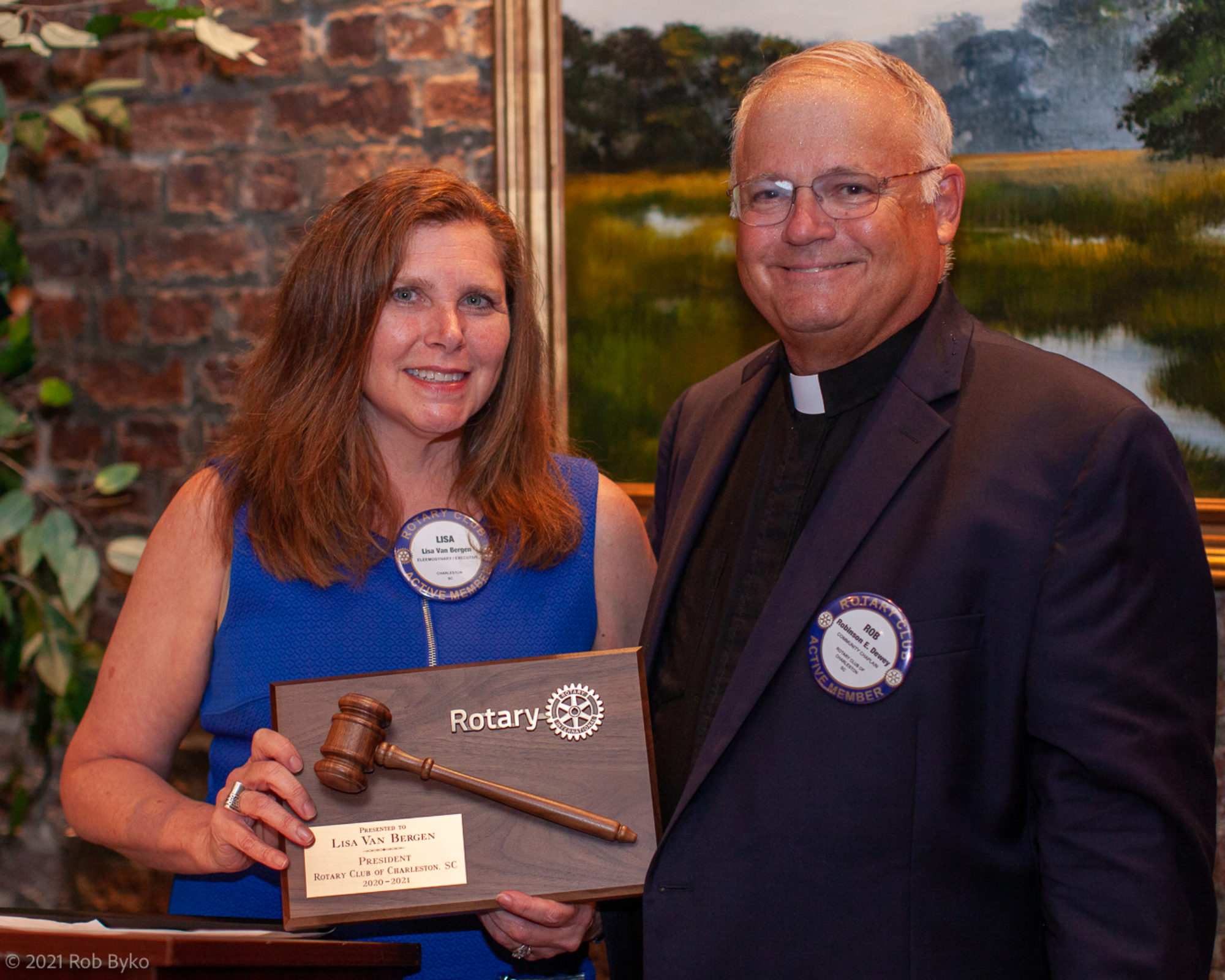Observations of a Deployer
February 16, 2010: Jim Geffert introduced our speaker, Col. Benjamin Wham II, who gave us an intimate soldier’s eye view of what it is like to deploy to and live in Iraq and Afghanistan. A graduate of The Citadel, he holds a BS degree in Civil Engineering and is a part of team Charleston, a group of 7142 service personnel assigned to the Joint Base Charleston.
He has spent a tour in Iraq and one in Afghanistan but told us primarily about his time in Iraq starting with the long journey by C-17 aircraft, which is not as nice as commercial coach, but at least you can stretch your legs. His base was located SE of Bagdad and had two airstrips. Seen from the air, it is a virtual tent city. The tents are comfortable but the temperature inside in the daytime is 140 degrees! Nearby are 4000 year old antiquities such as a pyramid, the house of Abraham and the nearby Euphrates River. Immediately next to a tent was the test firing range with an image of Saddam as the target.
The good part is the comradeship of those with whom you serve, and the visits from celebrities who often took the names of the troops back to the USA and called the families. The bad would be the heat and finding bats in your tent. The strange is living through a three day sand storm during which everything looks yellow and the sand gets in your hair, eyes and mouth. It also seemed strange to get water from a hand pumped 100 year old well.
One of their proud accomplishments was the renovation of a school and getting the children back to classes. But the danger remains, with the ever present chance of coming upon a roadside bomb, which can be hidden in anything,
Reported by Fred Sales, Keyway Committee

